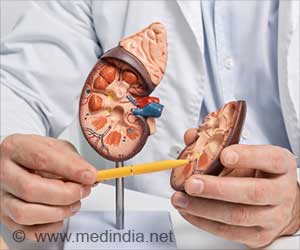Microsoft chairman Bill Gates, the world's richest man, on Friday promised 10 billion dollars (7.2 billion euros) to develop miracle vaccines for the world's poorest nations.
Microsoft chairman Bill Gates, the world's richest man, on Friday promised 10 billion dollars (7.2 billion euros) to develop "miracle" vaccines to be used in the world's poorest nations.
Gates announced at the World Economic Forum that the money will come over the next decade from the foundation he runs with his wife Melinda, and that vaccines will become the charity's top priority.The Bill and Melinda Gates Foundation has now committed more than 25 billion dollars to various health projects, especially targeting AIDS and polio and other diseases that hit poor countries.
"We must make this the decade of vaccines," Gates said in Davos. "Vaccines already save and improve millions of lives in developing countries.
"Innovation will make it possible to save more children than ever before."
Increased vaccination could save more than eight million children by 2020, he added, but called on governments and the private sector to do more.
"Increased investment in vaccines by governments and the private sector could help developing countries dramatically reduce child mortality by the end of the decade," Gates said in a statement.
Advertisement
"We?ve made vaccines our number-one priority at the Gates Foundation because we?ve seen first hand their incredible impact on children?s lives," she added.
Advertisement
"The Gates Foundation's commitment to vaccines is unprecedented, but needs to be matched by unprecedented action," said World Health Organisation director general Margaret Chan.
"It's absolutely crucial that both governments and the private sector step up efforts to provide life-saving vaccines to children who need them most."
One, the activist group set up by rock singer Bono to fight against poverty and preventable disease, said Gates's money "is a testament to their belief in catalyzing transformative change."
But it also said that western governments and institutions must "accelerate their own investments in effective organizations."
Gates began working full time at the Foundation after stepping down from heading up Microsoft business operations in July, 2008.
He is in Davos as the world's leading philanthropist and his activities overshadowed those of the political and business elite at the Swiss ski resort.
Meanwhile at the meeting, Greek Prime Minister George Papandreou sought to shore up international support for his country as its borrowing costs shoot up and debt problems in Greece and other countries put pressure on the euro.
Reaffirming his determination to cut the 12.7 percent budget deficit, the prime minister acknowledged the country's troubles over the past year including serious riots in Athens before his socialist PASOK party won an election.
"The riots that we had last year were at the height of the scandals in our political life," he said.
"Banks were being bailed out then, there was corruption and there was no legitimacy in the political system.
"We have re-established legitimacy and there is great support for us even from the younger generation."
Papandreou said: "It is important that whatever we do it is seen as just. It may be painful but it must be seen that we are all paying for the burden." And he insisted that the government would protect the unemployed.
"We do have to make sure that in carrying out this austerity programme we don't push the bottom rung out into desperation," he said.
Other leaders held talks on climate change, focusing on a summit to be held in Cancun, Mexico this year after the widely criticised UN summit in Copenhagen in December.
Mexican President Felipe Calderon said the cost to governments of climate change would be central to the success of any campaign but admitted there are "low expectations" for the summit.
He said the battle against climate change must also be a battle to create a new kind of jobs. "We aim to reach a robust, substantial and comprehensive agreement," he said.
Source-AFP
THK








